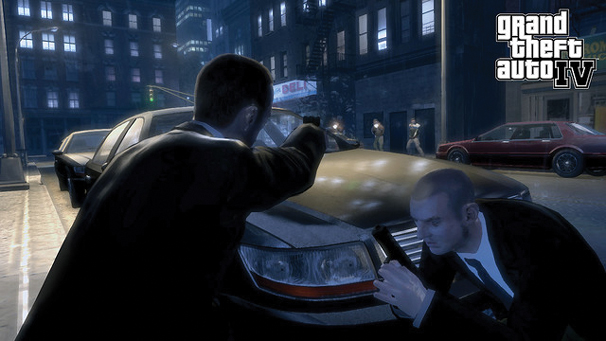
At this year’s Golden Globes, the critically lauded show “Homeland” took home the award for “Best Television Series – Drama.” Despite its critical acclaim, the show has faced criticism for its depiction of violence — as have Oscar-nominated films “Zero Dark Thirty” and “Django Unchained.”
Following the tragic events at Sandy Hook Elementary School in Newtown, Conn., Aurora, Colo. and now Price Middle School in Atlanta, Ga., criticism seems warranted. But film and television aren’t the only media receiving the blame. With the discovery that Adam Lanza — the Sandy Hook shooter — played many violent video games, politicians pushing for gun control regulations want to regulate video games as well.
A week after the shooting at Newtown, Wayne LaPierre, the executive vice president of the National Rifle Association held a press conference during which he blamed “blood-soaked” films and video games for contributing to gun violence in America. Later in January, Vice President Joe Biden met with entertainment industry representatives to engage in a dialogue about the same issue.
Research shows that video games are extremely popular among young people. A 2008 Pew study found that almost all teens play video games, and at least half do so on a daily basis. Therefore, Adam Lanza’s video game habits should not come as a surprise.
“The question is whether there is a causal relationship between representations of violence in video games and acts of violence in the real world,” said Eric Zimmerman, a professor at NYU’s Game Center. “Despite the government pouring untold millions of dollars into research in order to establish a link between these two phenomena, my reading of the research is that there is nothing that proves games affect the judgment of players and would cause someone to commit acts of violence.
Human beings have complex relationships to the art, entertainment and media they interact with that go far beyond some kind of ‘monkey see, monkey do’ notion of media effects.”
Meanwhile, scientific studies still fail to find any correlation between video game play and human behavior.
But amid so many calls for regulation of guns and violence in video games, it is easy to forget the national tragedy that brought the issue to the forefront in the first place — especially as the shooting is now becoming the cause celebre of national debate.
“I think with things like Newtown, the media tries to sensationalize it,” said CAS senior Alyse McGuigan. “Obviously these stories need to be covered, and they shouldn’t take away from the tragedy of it, but I think they need to change the way they cover it.”
A version of this article appeared in the Tuesday, Feb. 19 print edition. Nivea Serrao is a contributing writer. Email her at [email protected].






















































































































































